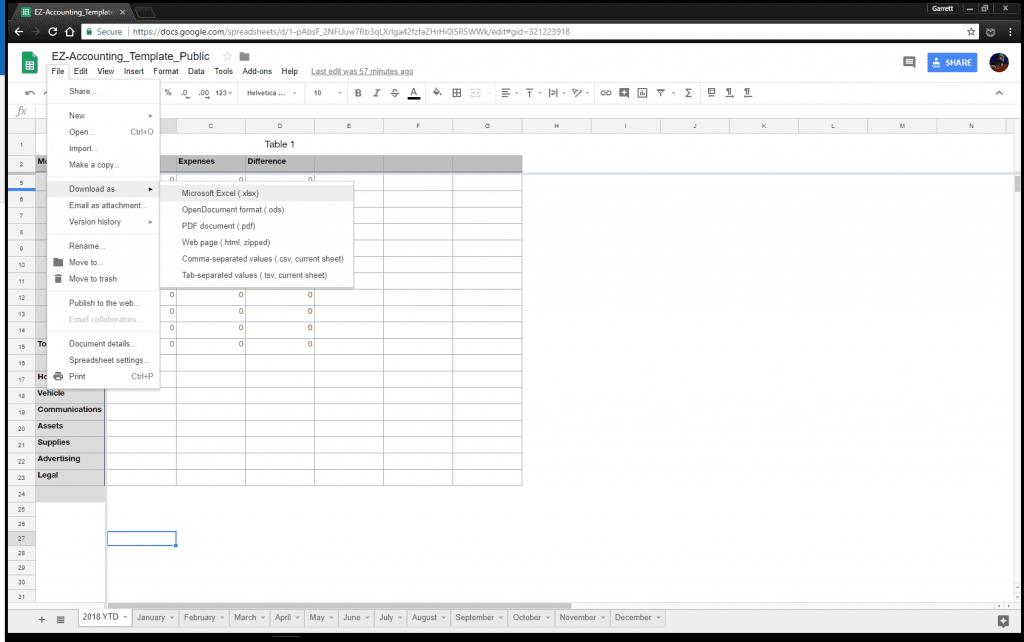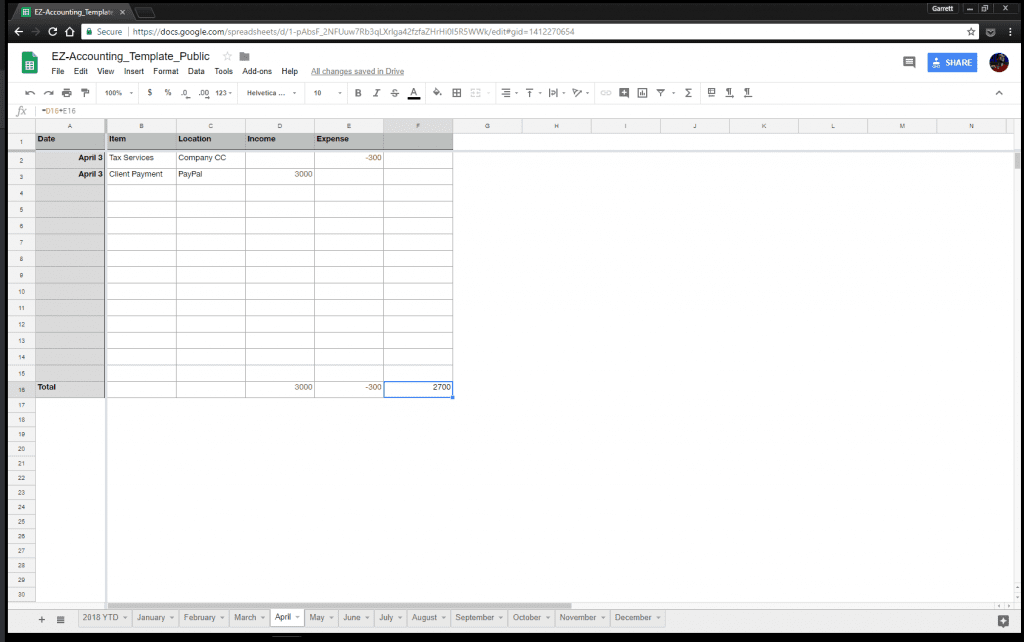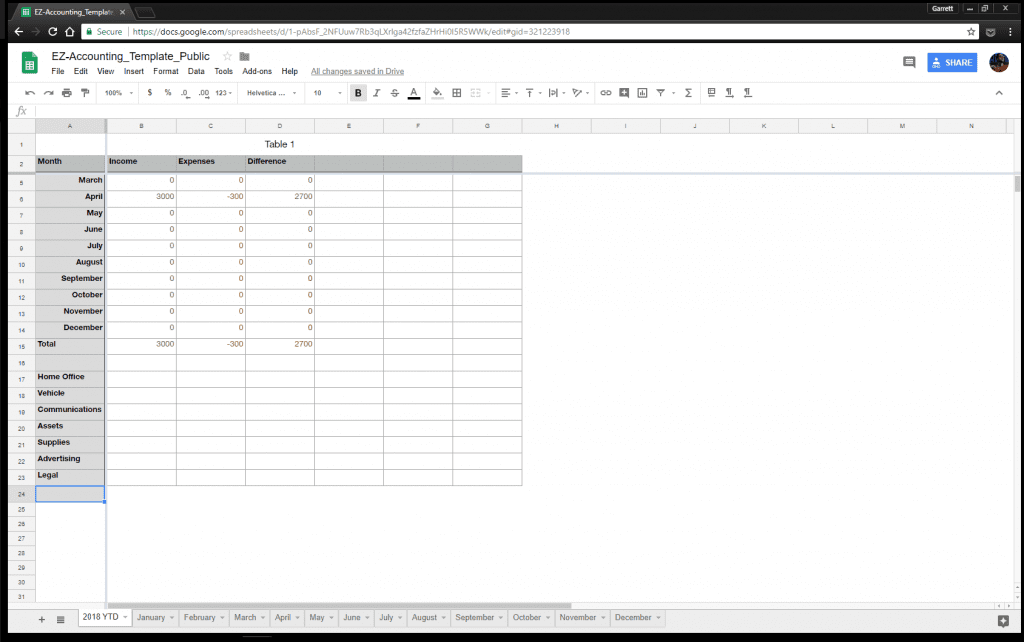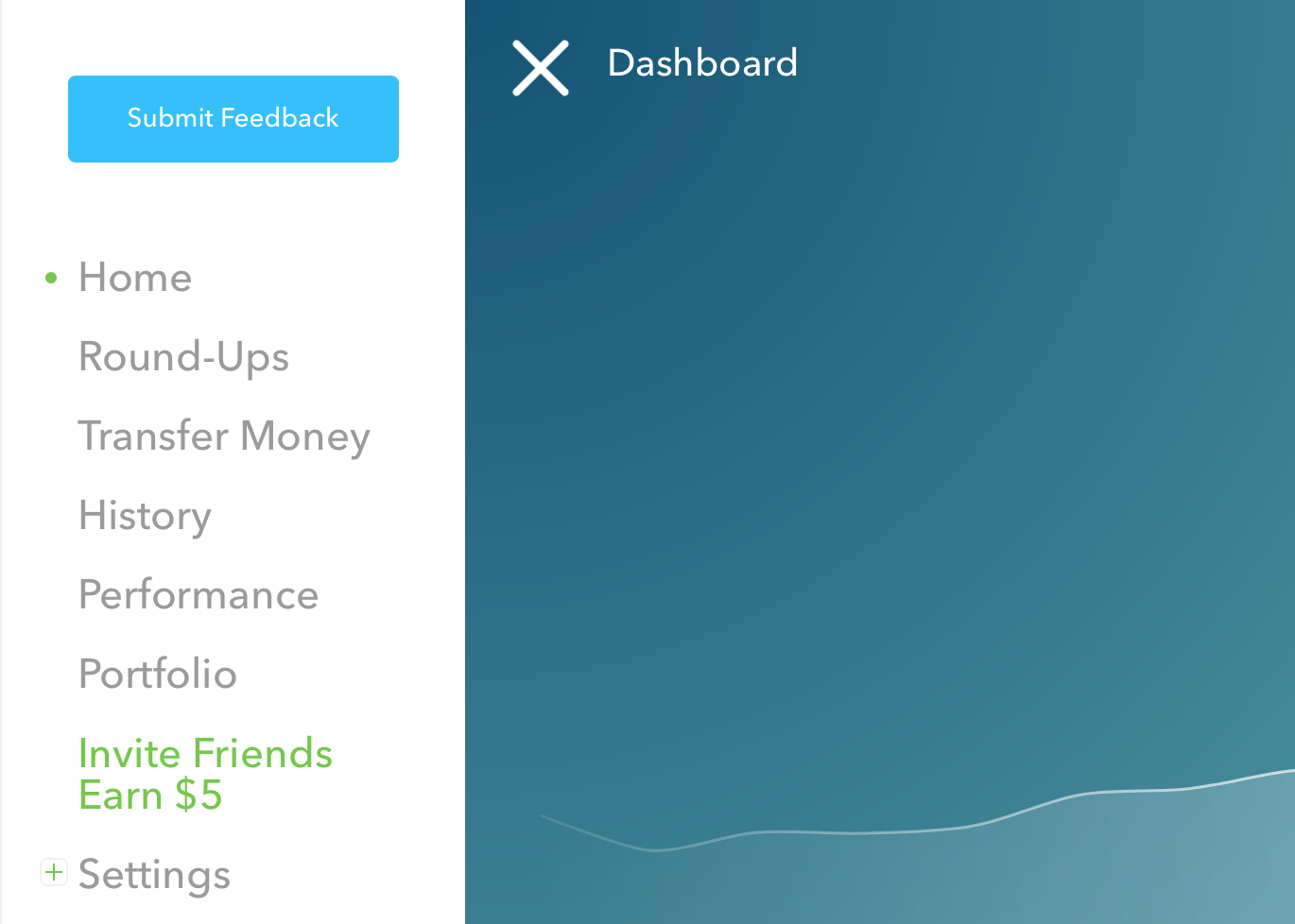This is a long post, so here are some important sections you can skip to:
You gotta eat. You gotta have a roof over your head.
Here’s the thing: you need money.
We live in a post-scarcity world that thrives through a strange, impure, though somewhat functional version of capitalism. At least, those of us in “developed nations” as they call them. That’s inescapable.
Bill Hicks (RIP) said:
“If you think you’re free, try going somewhere without money.”
No matter how much you hate it (or love it), it’s inescapable. You need money. How do you get food? Money.
You can grow it but that’s a lot of work. It’s a full-time job within itself. Seriously though, if you have time and energy to do that, I recommend it. But you probably don’t most of us don’t.
Same for the roof over our heads. Even if you bought a house and paid off the mortgage, there’s still government sanctioned property taxes. I’m trying hard not to get political here but I just am not a fan of all of this. But it doesn’t matter because it’s the reality and you and I have to work within that reality.
Lucky for both of us, I’ve figured out a way to do without being miserable for the rest of our lives. We’re going to make money making games. But before we do that, we need to get money.
Not having a way to pay your bills will stress you out.
The fastest way to kill any pleasurable thing is stress. If you’re stressed about life, you’re not going to enjoy game design and development.
If you’re stressed about anything, it’s going to kill your joy.
You might be so stressed about money that you think “I should be working right now” when making games.
Or, you’ll think “I need money right now so I’ll have to get this game out as soon as possible so I can start making money.” That turns gamedev into a job and not something you enjoy.
It also runs a high risk of creating a rushed, unpolished, shitty game. Then, that game won’t do well. You won’t make a lot of money. You’ll get discouraged and burnt out. You won’t want to make video games anymore. Result: passion == killed.
You need to avoid this at all costs.
Taking on massive debt will stress you out, too.
We also need to avoid debt. Having debt is going to stress you out.
To be fair, most of us in America have some amount of debt; many have a massive amount of debt. You need to keep the debt to a minimum and ideally non-existent.
The problem is, we don’t always have that choice. I understand that you may live in an area where everything is spread out and public transit sucks, so you need a car. But your car broke down and now you need $1000 worth of maintenance, or worse, a new car (new meaning, go get a used one for a couple grand). Now you’re in debt getting these things and it wasn’t your decision.
It happens. I understand. I’ve been there myself. Don’t be ashamed, just pay it off. Work to pay off all your debts. Keep your credit cards paid off every month.
Just like not having money is going to stress you out, having debt is going to stress you out too. We need to get a steady income, and you need to pay off your debt before you do anything drastic like quit your job and go full-time gamedev.
I wouldn’t say “never go full-gamedev”, because that’s the goal, but we need to make sure the timing is right and the preparation is done. The first parts of that preparation are to pay off debt and have nothing left that isn’t paid for.
It takes a lot of time to build, release, and market a game.
Your game will not be done in a week. It probably won’t be done in a month.
Even if you’re making little games, they’re not going to be ready for production (or ready to be shipped, rather) in a short period of time until you’ve already got a few games under your belt and have figured out your processes and efficiency.
Even once the game is done, polished, juicy, and bug-free (mostly), you haven’t done any marketing, have you?
You’re going to flop and maybe, if you’re lucky, pick up some customers and fans in a few months.
Flappy Bird made a lot of money, but it had been out for months before it reached the point of success.
Can you survive like that? Can you survive for 6 months to a year without your games making any money? If yes…well then I guess you’re good to go. Start making games. If no, you need to be able to survive for at least 6 months before you throw everything out and focus on game design and development.
You need to have money coming in to pay the bills while you build and market your early games.
Once you’ve got a few games out that are well marketed and polished and bug-free (again, mostly), you will have a good amount of residual income, or money saved up from launches, that you can use to leverage a more focused gamedev period.
Most people would say 6 months but I hate stress so I recommend having a year of income saved up before you go all-in.
You should have a year in savings, and/or residual income coming in before you quit your job and start making games full time.
It’s going to take even longer if you don’t already know how to make games.
Of course, if you’ve never made a game before, it’s going to take longer.
You’ve got to learn the software, learn to make the art, polish everything, work out your processes.
You’re going to be slow at making games at first. It’s okay, in fact, it’s encouraged! Take your time. Really learn the nuances of what you’re working on. Get into it.
Also, make a lot of games. Make lots of little games. Learn your processes. But during all this time, you need to be making money, too.
You’ll also need money to fill up the gaps you don’t know like development or art or music.
You’re going to find out that there are a lot of parts of gamedev you just are not good at, or don’t want to do.
I’m terrible at art. I can not draw. I’m not great at 3D modeling, either. My animations are terrible. Art just is not my thing.
So, I either work within my constraints to build very minimalistic games, or I hire someone to do the art. That costs money, so I need to have money.
You’ll find yourself in a similar boat every once in a while.
Maybe you’re not a musician, but your game needs music. Maybe you don’t know anything about sound effects, but there are sound effect libraries out there you can buy. You can buy art. You can hire programmers.
Maybe your art is beautiful and animation is your forte, but you can’t program worth a dang.
I’ll talk more in the future about how to make games w/out programming, but ideally you’ll hire programmers or artists (whatever you need) to make the really awesome games you have in your head (and hopefully in GDD’s because you need to write those ideas down before you lose them).
The fact of the matter is, you need to have an income before you start making games. You need to have generated residual income that’s coming in, or have a lot of money saved before you go off on your own.
We’re going to complete this in two ways: by first getting a job, and then making money playing video games.
First, get a day job.
- You need to get a day job if you want to be a professional game designer or developer and run your own studio.
- You need to get a day job if you want to be a professional game designer or developer that works with clients.
- You need to get a day job if you’re just learning to design or develop video games.
You need to have money coming in, and you need to be working towards your game design and development goals in your off time.
This will take the stress of not having guaranteed income off your back.
It’s going to take the stress off your back. Having a guaranteed amount of money will pay your bills and get everything done.
If you’re stressed out all the time, you’ll never want to work on your games or get any extra work done. You’ll come home and space out on Facebook or in front of the TV. Maybe you’ll load up a game to de-stress and the next thing you know it’s time for bed.
Of course, you need to take time for yourself, too, but you don’t want to spend too much free time if you’re working to become a full-time game developer.
If you want to make it your full-time job, you need to start with a day job and make a smooth transition once you have money coming in.
Your day job can’t be related to the gaming industry.
It’s important that your day job is not the same as your gamedev aspirations. I know, it sounds like you should get a job in gamedev if what you want to do is gamedev, but there are a few reasons why you shouldn’t do this.
The first is that when you work on something all day, you’re not going to want to take time at home to work on the same type of thing.
If you just spent 9 hours at an office doing gamedev, you’re unlikely to have much motivation to come home and work for another few hours on gamedev. You’ll want to do something else. You just spent all day on gamedev. Your brain is fried from that.
That’s why if you get a day job in something completely unrelated, you’ll come home ready to work on gamedev. It will remind you every day why you want to come home and hustle on gamedev.
You want to get out of that day job, even if you enjoy it, not because you hate it but because you are passionate about gamedev and want that to be your main source of income. You want to spend 40+ hours a week working on gamedev and not your day job.
I personally love my day job. I am Communications Director for a nonprofit trade association. It’s completely unrelated to video games. Most of my job is internet marketing, traveling to our events, and handling the website.
Of course, those are things that I do for gamedev and are a part of running any business, but when I come home I mostly focus on gamedev. I work on my marketing during lunch and in the mornings before I go to the day job.
Another reason you don’t want to have a day job in gamedev is because many companies lock you in with non-compete clauses.
They’ll make you sign a contract that says you will not make any other games while working for their company. If you do, they will own the rights to the game.
Sounds unfair, but it’s totally legal, though maybe not ethical. Either way, it happens, especially for bigger companies. Some smaller companies are catching on and doing it now, too.
You don’t want to get locked into that even if the job seems like a dream job. You will be completely unable to make a transition to full-time gamedev if you’re not allowed to even go home and work on gamedev.
Be aware that some non–gamedev companies will do this to you, too. I once started to work at a company that was in the substance abuse rehabilitation industry and they made me sign a non-compete that said that even video games would be theirs because it could be used in rehabilitation.
Not a very nice thing to do, but luckily that didn’t work out in a bad way. I also didn’t work on any game while employed there, which really sucked.
You also can’t be doing freelance work for the same reason as above; you’ll be too tired to work on your own games.
Back when I first started doing internet marketing I started experimenting with my own websites, but I was talking to a co-worker named Drew who gave me a great analogy:
“It’s like being a mechanic and going home to work on your own car after spending your whole day working on other people’s cars. You’re just too tired of working on cars to work on yours.”
Though I once had a roommate who was a mechanic and he went home and worked on his own car, but he was just really passionate about his car.
There’s also the freelance hustle that will take up a lot of your time. If you dig back in my content here, you’ll find some blog posts about content marketing. I used to do freelance content marketing, SEO, and consulting.
I made good money and enjoyed the job, but I was working almost constantly. No time for a girlfriend, no time for most of my other friends, and no time to really enjoy life. That particularly meant no time to work on gamedev.
How to get a job:
Alright so how do you get a job? You can’t just walk into a place and ask …Wait yeah actually you can.
Start by asking people you know.
The first thing to do is ask people you know. Reach out to people who know you and let them know you’re looking for a day job. A lot of people will have openings where they work or know someone who does.
This is the easiest way to find a job, and a lot of people I know, including myself, have gotten a lot of their jobs through people they already knew.
Besides, it’s free to ask. Post out on Facebook or something.
Next, check Craigslist.
I found my first really good job on Craigslist, the one that got me started on the path to learning internet marketing. It was a completely random find.
My roommate at the time was looking for a job and asked how to use Craigslist to find jobs. So I pulled out my computer and opened it up and was showing him when I saw the ad. I told him that ad was mine and I’m going to apply for it, so don’t, and he agreed.
The next day I was in there for an interview and later that day I got the call that I was hired. Thus started the journey that got me here. All thanks to having a shitty job and a roommate (who worked with me at the shitty job) who wanted to get out of that shitty job.
LinkedIn also has great job search capabilities.
The second time I went looking for a job was recently, and I signed up for a paid LinkedIn account to look for jobs.
I sent out a lot of resumes and didn’t get anything back, but from what I hear, it’s an actually great place to apply for jobs.
While you’re at it, you get access to all of Lynda.com’s courses when you’re a paid LinkedIn user, so you might as well use some time to go through their course videos. If anything, just watch the business and marketing ones. You’ll get a lot from those.
There are also some for Unity and other gamedev stuff, but they’re a bit outdated last time I checked.
Monster is another place I’ve heard good things about.
Monster.com is another popular one, though I can’t say I’ve ever tried it so there’s certainly no endorsement from me. I do know of people who have gotten jobs from that site before, so I do know it works.
Plus there are TV commercials so it must be somewhat successful, right?
Also check any other job boards you can think of.
If you can think of, know of, or find any other job boards, they might be worth trying.
I know a lot of associations, such as the one I work for, have job boards on their websites. So do colleges, and of course, your local county website will have a job board as well.
As I said before, you can always just walk into a place and ask for a job!
Getting a day job is going to save your game development career. I promise you that. You may think it sucks, or is terrifying, but it’s going to make focusing on gamedev 100x easier and your games will be 100x better because of that.
You can also make money playing video games.
What if I told you-you can start making money playing video games?
You’re going to play games when you relax anyway so you might as well monetize your hobby.
I mean, you do play video games, right? Of course you do; you’re learning to build video games.
You’re not learning because you think it’s some market to get rich in. You’re doing it because you have a passion for games. It’s because you play video games and see things you want to do or wish were done differently. You are, at your heart, a game designer or developer, and you want to make games.
You have to play video games to make video games. You have to understand what makes them tick.
- What makes them good?
- What makes some of them suck?
- Which levels are the most fun?
- Why does everyone hate water levels but game designers keep putting them in?
All of these things come from experiencing the medium first hand.
What if you made money while playing video games? Monetize your hobby and make money while you relax at night and on the weekends.
You need to start making money while you play video games.
Lots of people are making supplemental income playing games, or even making a full living.
If you’ve ever been on YouTube or Twitch.tv you’ve seen people who are making money playing video games.
Pewdiepie makes millions of dollars every year playing video games and posting the videos on YouTube. He’s not the only one making money. Most people aren’t making millions, but many people are making a living playing video games.
I’m not saying quit your job to become a full-time streamer. Not yet, anyway. We can get you there, though. For now, let’s just focus on some supplemental income.
There are ways to monetize that others aren’t taking advantage of.
I have a background in marketing. I’ve been working in digital marketing for almost 10 years, and I have a focused specifically on internet marketing. Here’s the thing I’ve noticed studying Pewdiepie and other streamers and youtubers: they’re not taking advantage of the best ways to make money.
Most of them could have been making more money the whole time.
That’s not to say what Pewdiepie is doing is wrong. He’s obviously in the right place now.
What I’m saying is that when he started, he could have been making more money from the beginning. He could be making even more money now because of that.
I’ll show you how in my free email course Gaming For Fun and Profit (sign up below), but let’s take a look at some more of those tips right now.
[convertkit form=4973180]
Most people who are making money streaming don’t even know marketing.
The thing about most streamers and YouTubers is that they don’t really know anything about marketing. They know about playing video games.
Here’s a tip regarding content marketing: teaching what you know is a great way to get people to listen to you.
While a lot of streamers and YouTubers don’t know that marketing tip, they’re subconsciously or unconsciously doing it by making achievement videos. They show you how to get the achievement and you find it because you want to know how to do it. You see they have other videos teaching you how to do other things in the game, and you subscribe or follow them.
They grow their audience that way.
There are tons of other marketing tips and tricks, really just techniques, that are being used by major corporations and small businesses all over the world. If you knew them, you could apply them to your streams and videos and make a lot of money by growing and monetizing your audience.
You just need to know the marketing techniques and how to apply them to your specific industry.
That’s what the free email course Gaming for Fun and Profit is for.
The more free time you have to dedicate the more money you can make, using this to replace your day job (if you want).
Once you’re building up an audience and monetizing the audience in an effective and fair way you can eventually begin the transition of replacing this with your day job.
The great thing about YouTube videos is that they’re there until they get deleted. I have YouTube videos I posted a year and a half ago that still make me enough money to pay for my groceries every month, and I haven’t touched them. It’s practically set and forget.
Of course, if you keep working on it, you’ll get even more money and can pay for more than just groceries.
But our goal isn’t to ultimate replace our jobs with streaming. We want to replace our jobs with game design and development.
But who is the target audience for game designers and developers? If you’re selling a game, who are you selling it to?
The same people who are watching you play games. Your YouTube and Twitch audience will also be your gamedev audience. These people are the first people that will buy your game when it’s ready.
And they’re the first people who will promote it and play it online for others to see. They’re the first fans you’ll have, and they’ll help you make the transition from streamer to gamedev full time.
It’s important to have this audience set up and actively engaged during your transition phases.
That’s why I set up this free online course to teach you how. I originally was going to turn it into a book and sell it, but I decided it would be better if I just gave it away for free. It was going to cost $40 for just the book and then as much as $130 for bonus materials. Instead, everything is being sent right to your inbox for free.
You can sign up with the form below:
[convertkit form=4973180]








